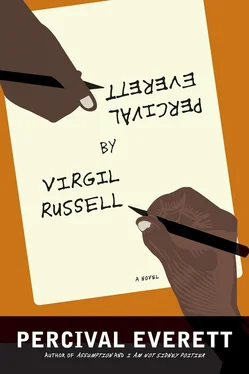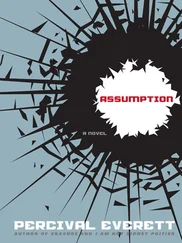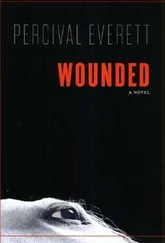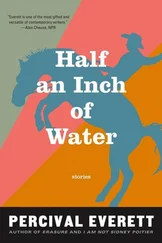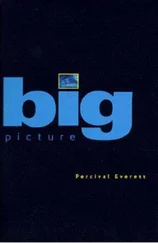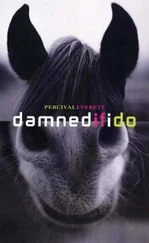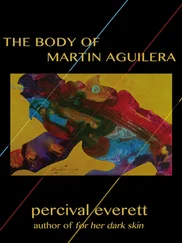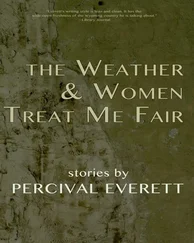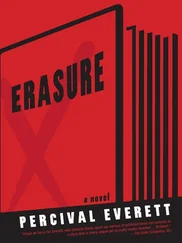Not yet. This voice was not Name’s. It came from the thicket behind you. It was deep and throaty, a familiar voice, and it reminded you of a baritone sax. You turned to it and it was someone who looked just like you, unless of course it was you. You looked at the one that looked like you.
Who are you? you asked.
Who are you? the one that looked like you asked.
You look like me.
And you like me.
And your name is?
You. You are my name.
You mean You is your name?
What kind of grammar is that? You are my name?
Shall I call you You?
No, you are my name.
I am your name?
Yes, You.
Spell your name.
How can you be spelled?
Y-O-U.
That spells you? How can a person be spelled?
Are you saying that I am your name?
Now you’re getting it. You are my name?
Then how shall I call you?
Why would you want to call me?
Name spoke up. What a mess, what a mess. The pig’s playing checkers, the cow’s playing chess. You are his name.
How can I be his name? I’m not even a word.
Don’t sell yourself short, the one who looks like you said. You are as good a name as any.
Do you know him? you asked.
Of course.
And if you wanted to get his attention, what would you call him?
Name pointed at you.
Me?
Name shook her head. Anyway, why would I want to call him when I can call you?
You shook your head. Where are we? you asked.
We’re in a coma, the one who looks like you said.
We used to be in a pickle, Name said. And then for a while we were in a comma, but we lost an m.
What am I doing in a coma?
Waiting to die, the one who looks like you said.
Why do you look like me?
Why do you look like me?
I am your name?
You are my name?
You?
No, you.
A coma?
A coma.
There once was a man in a coma, who couldn’t close up his stoma, the words they fell in, the words they fell out, yet he no longer desired to rhumba. Death is no way to die.
Of course there’s nothing after it, the one that looks like you said.
After what? you ask.
After it, he said. I said there is nothing after it and that’s where I stopped. There was nothing after it.
It.
Qui.
And after it?
Nada.
Before it? As lingua.
Alles.
Why are you doing that?
What?
Answering in different languages.
Non so cosa vuoi dire?
Like that. French, Spanish, German, and now Italian.
Der er ingen forsskellige sprog.
What the hell is that?
Todas as linguas são a mesma coisa.
Why is he doing this? you ask Name.
Doing what?
Saying these things. Saying is doing? What?
Dire est faire. Stop it.
You are his name.
I am his name?
You are my name.
I have a word for you.
And what is that?
Why, it is a sound that when uttered renders either the understanding of a thing, action, or concept, the smallest unit of meaningful language.
I mean what is the word?
Except when the word is meaningless, and we do say things like that’s a made-up word. Which is a way to say that it is no word at all.
What is the word?
Indelible.
Indelible.
Indelible.
The Second Face of Desire
. . lying here like this I have learned some things about us and learned nothing at all and it is the nothing at all that sings to me in this cucumbery trance, that we may assume, we may choose to assume, that as any given state of affairs is upset, that there arises an instinct to make them anew and as we set about we entertain all these words, all these thoughts, notions, utterances, calculations, equations, texts, all of this, and language remains always a step ahead of us, and we think this most clearly as we die, a step, two steps ahead of us, our speaking, our writing, our groping always lags behind language, far enough that there is nothing to say about language itself, as we cannot look directly upon its magnificence, like Semele and Zeus, burn baby burn, and yet, a Hegelian desire, a Freudian instinct, no matter how much we yak, how much we entangle ourselves in words and texts, all we ever do is circle where we think language might reside, guessing like we guess about the location of electrons, about positrons and pions and muons and kaons and leptons and quarks and imaginary ducks, using it without pause, without thought, knowing that we cannot live without it, that we define ourselves with it and by it, but it is not ours, it found us, waited for us to find it, we evolved to find it waiting and we explore its structure, the structure we impose, believe we add to its content daily, recognize its turns, its fluidity, its features, its alterability, and yet we cannot account for it, explain it, find the egg of it, because it is, in short, god, the only god that we know or will know or have known, it being immaterial, without form or mass or weight or constituent parts, the identification of parts of speech being little more than an exercise in question begging, like describing judgments by examples of things judged, and it is completely dependent on us and yet we give it nothing, just as digging more ditch makes the ditch no more a ditch and it dies every day and yet continues to live, lives in units that we cannot see or hear and so big that we cannot miss them and we can represent none of them, as it exists without senses, without medium, without intention, without reflection or deflection, but not without us, as it makes us human, forces us to be human, reminds us to be human, yet has no feeling toward us, gives us life, conflict, confusion, war, and understanding, and it is all-powerful and without judgment and it can state its own apparent inadequacy and then overcome it, revealing that we are the site of the failure, create contexts, is contexts, is not the sum of its parts, and we cannot see, imagine, the whole of it, cannot imagine it at all and it creates gods for us to pray to, gods for us to fear and love, creates religions and then refutes them, creates a way for us to talk about the unknown, about language itself and yet does not create itself, is not created, just is, and we cannot imagine ourselves without it, cannot imagine without it, because it is god and it lets us know that god is just a word, that god is just a grammar, that its grammar is just our feeble construct to approach its radiance, it has nothing to do with texts, it has nothing to do with words, and probably has nothing to do with our thoughts and the things we think when we know we know nothing when we know there is nothing when nothing is our last safe cave of language, and vegetable, vegetable, vegetable me, the sky’s in the river, the moon’s in the sea, the birds speak in riddles and the dolphins tell lies, that we’ll all live forever and that nobody dies. .
So, As I Was Saying
I was not so different from the way I ever was except that everyone considered me to be on the other side of consciousness. That previous sentence could have been rendered in present tense, but that would hardly have made it present. I was dead the day I was born or at least headed toward death and I must say that I stayed the course with rather impressive and also rather common tenacity. One follows one and the other follows another and finally it doesn’t matter who died when or how or where. So do not bury my ashes in an urn, I said to them every hour, and I imagined that they of course did not hear me. But put my ashes loose on the ground, in a broad shallow ditch where I might feed something, what planet there is left. Say nothing over what was me, just sprinkle me, I said. Maybe even put a small bit of me here and a smidgen of me over there. Just spread me about. But for devil’s sake, don’t set me on a table and pretend to converse with me, I said. And so it was.
Читать дальше
